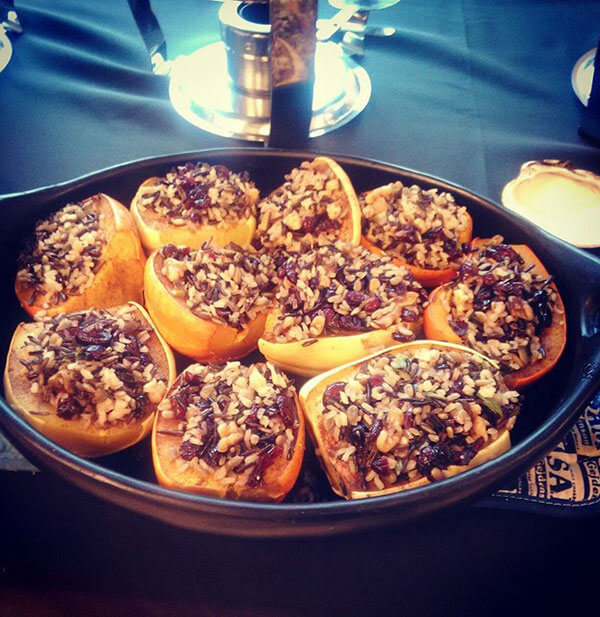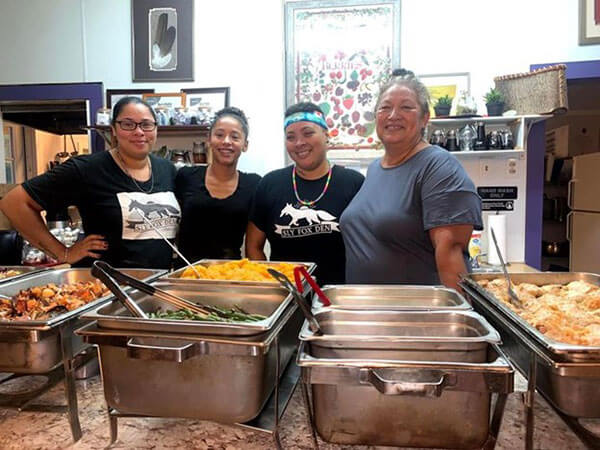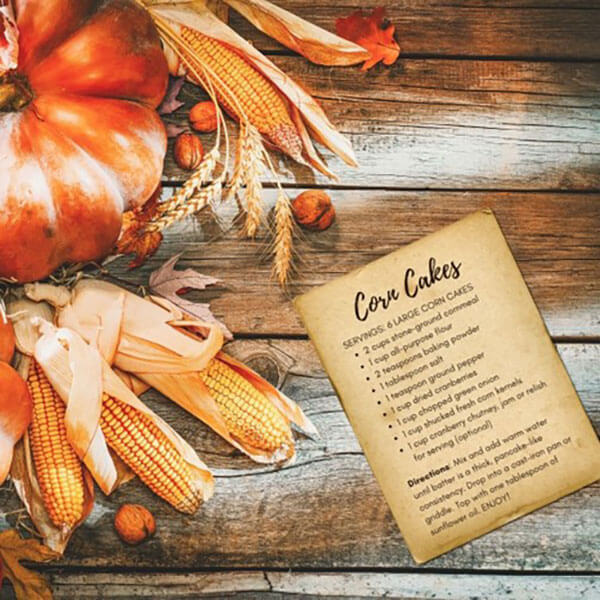With the fall foliage at its peak color, it’s a beautiful time on Cape Cod. For many, this change in season marks a time for the awaited blooms of fall harvest, delicious comfort foods, a time to be more mindful of eating seasonally and locally, and most of all a time to connect with family, friends and give back to the community.

The History of Eating Seasonally
Historically, to the Indigenous People of the Eastern Woodland Region a change in season always meant a change in diet. As the cooler winds rolled in, autumn would bring seasonal meats like deer and duck, hearty nuts like walnuts and chestnuts, in preparation for the winter ahead. What once was a natural way of life for the Indigenous people, today, eating seasonally has become more and more popular over the past two decades. Not only can it be argued as a more healthier lifestyle, supporting your local farmers also has a positive effect on the community.
Indigenous Cuisine

One Mashpee Wampanoag Tribal member and mother of four, spends her days in the kitchen preparing for her community members authentic indigenous dishes with a modern twist. Jade Galvin, granddaughter of the late Chief Vernon “Sly Fox” Pocknett, runs “Sly Fox Den Too,” in Rhode Island, with her mother and sister.
The authentic cuisine was a vision of her mother, Sherry Pocknett, who spent the majority of her youth fishing the waters and hunting the land of Mashpee. In 2023 Wampanoag Chef Sherry Pocknett wins the coveted James Beard Award for Best Chef: Northeast.
Food was always a form of art and communication in her home and a staple in the Mashpee Wampanoag Tribal community. Sherry and her daughters wanted each dish to boast the freshness and nutrients of locally sourced food through authentic indigenous recipes for every season, just as they remembered from their childhood. While “Sly Fox Den Too” resides in Rhode Island, the mother- daughter trio cater events to Cape Cod and surrounding towns.
“Depending on where the job is we will get our food fresh and locally supporting small business in the community”, says Jade as she prepares food in the kitchen along-side her daughters. For Jade, it’s not just about shining light on the importance of eating with the seasons, it’s about community and family! The restaurant is a home for her daughters to learn the ways of their ancestors to then pass down to their children for generations to come. Fall always brings excitement to Jade, her family and the patrons of “Sly Fox Den Too.”
“This time always brings people together,” she says while making a fresh batch of corn cakes, a modernized version of the original indigenous recipe. The fresh locally grown and dried cranberries and onions make this recipe a mouth-watering side-dish to any entree.

Why Eating Seasonally and Locally Matters?
This November, being Native Heritage Month, has called for an increase in catering orders for the business, from schools and community members who would like to know more about eating in sync with the seasons, especially heading into the holidays. As the craze gains popularity, people unfamiliar with the idea want to know just how it works.
Ask any farmer, the fall always marks the time for fall harvest, since the early winter months are typically when you would reap the benefits of your summer growing season. Further, crops cultivated during their proper time and season tend to hold more vitamins, minerals and nutrients. Eating seasonally, or eating those foods when they are ready, fills our body with their peak goodness. Not only that, crops grown during their season are abundant and plentiful, usually meaning a little cheaper for the consumer. A seasonal eater who buys their food from a local source is not only reducing their economic footprint, they are improving their diet by upping the nutrients in their meals. Not to mention, supporting your local small businesses. It’s easier, healthier, and cheaper!
Wanting to make the switch to eating seasonally and locally? Start with your local farmers as well as Jade and the team over at “Sly Fox Den Too.” The fall menu presents authentic native recipes like Nausamp (yellow corn grits) and three sisters succotash (vegetable soup) alongside dishes that incorporate locally caught fish and fresh vegetables, just to name a few. Add an indigenous dish to your spread, made with fresh, locally grown foods and “wow” your friends and family this holiday!









